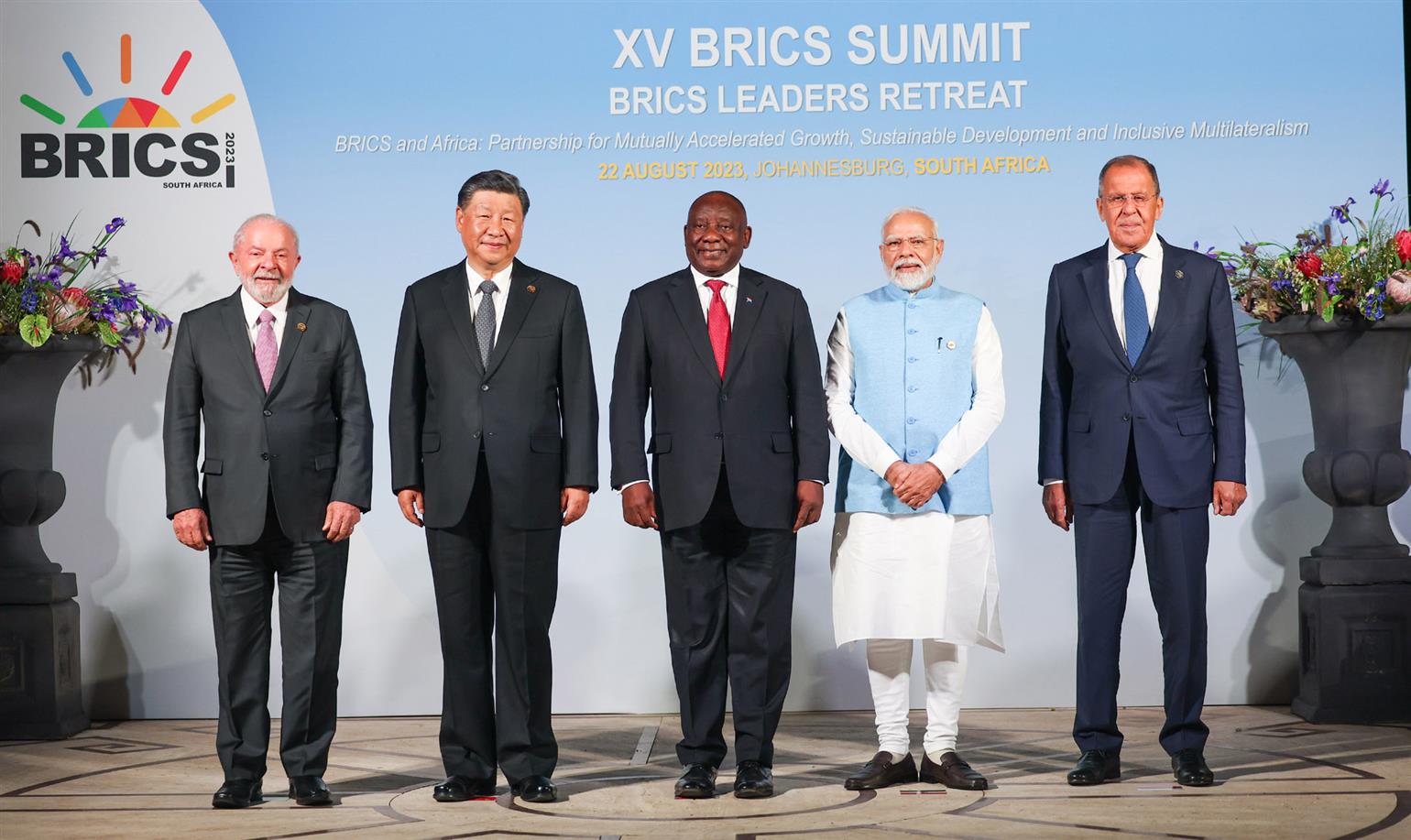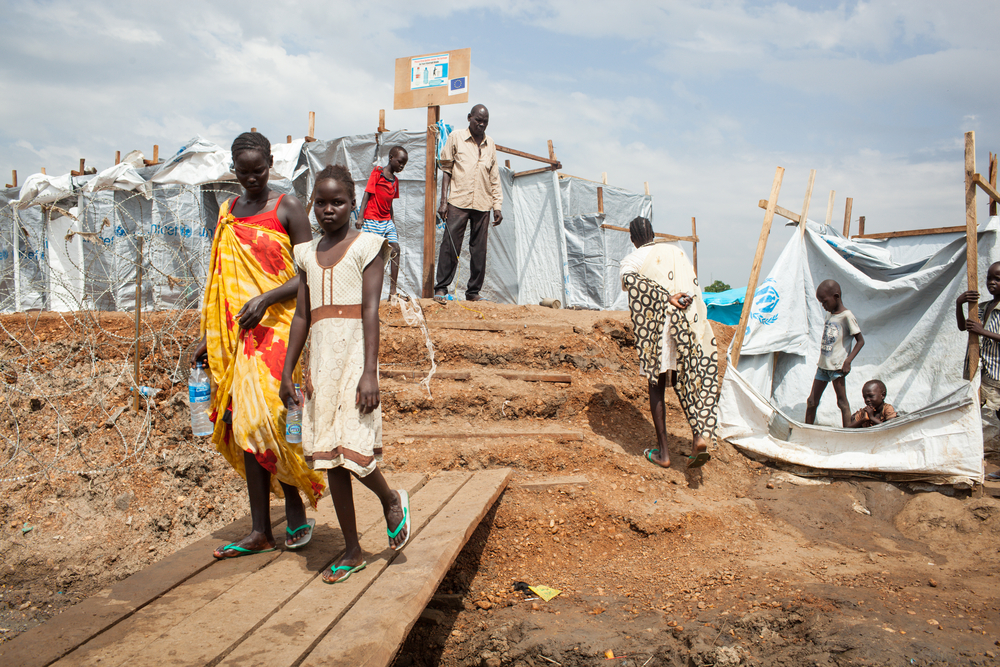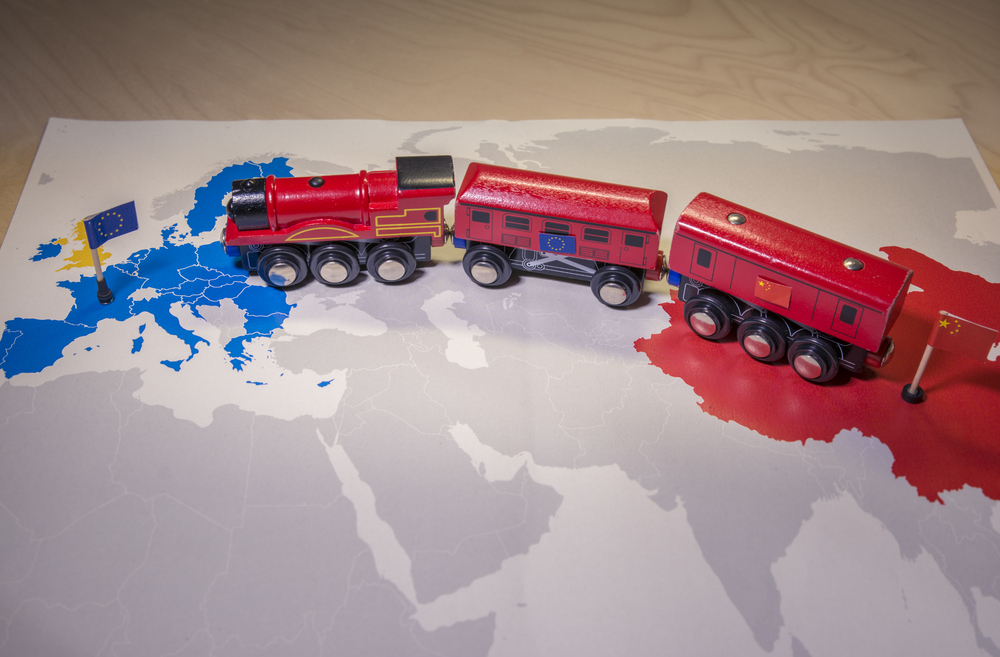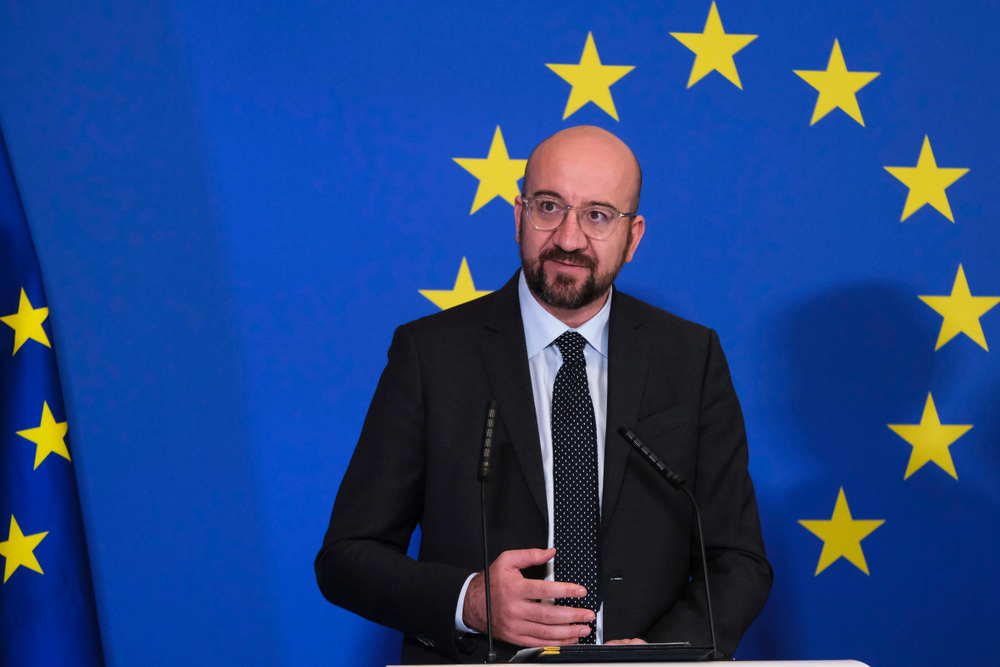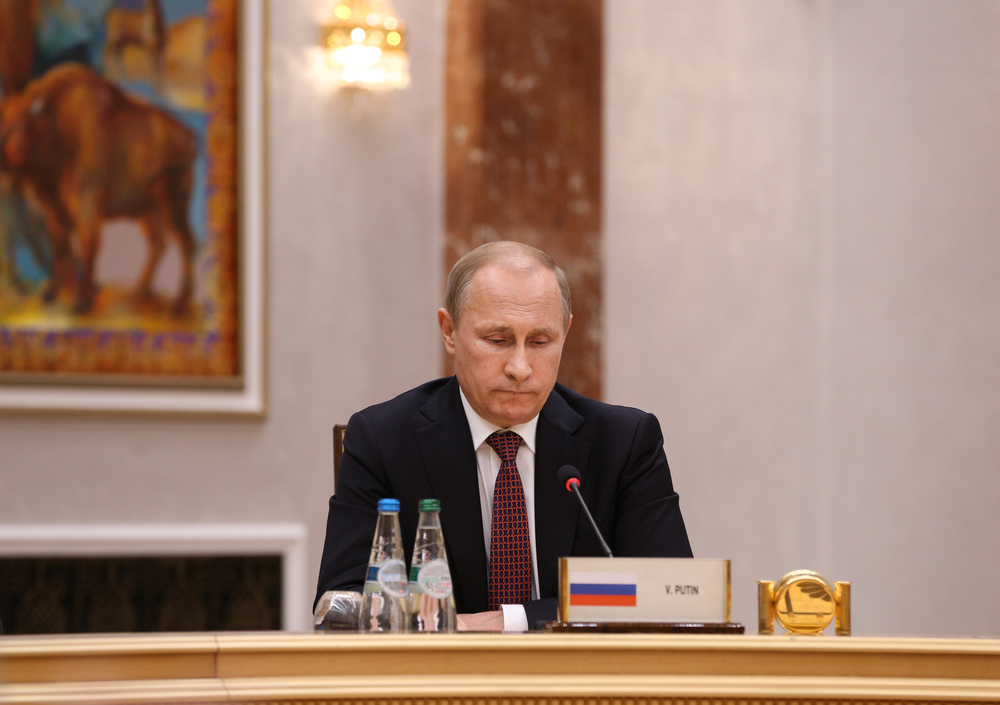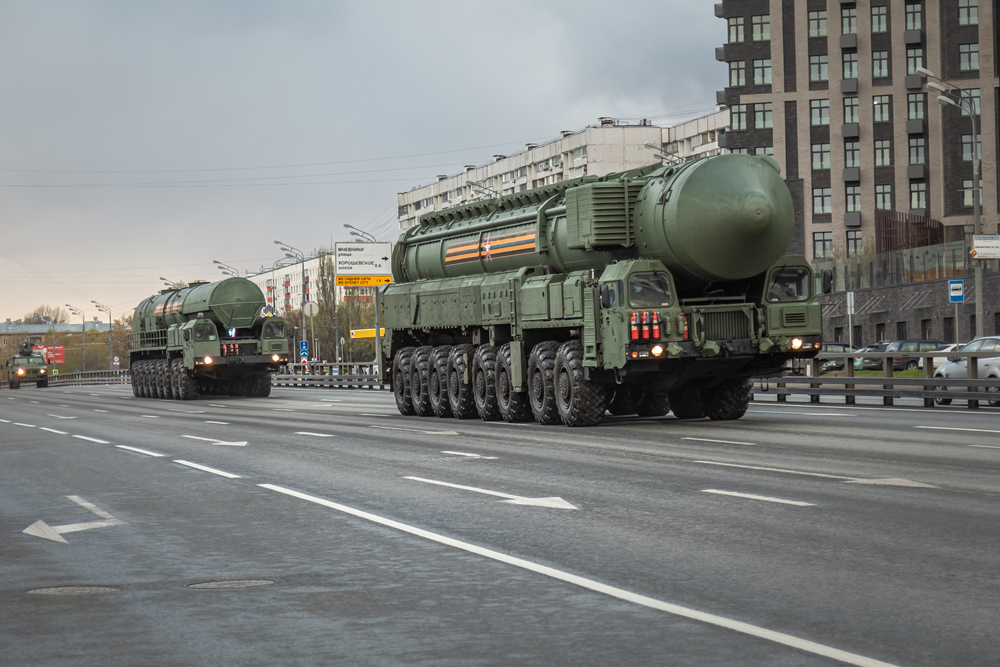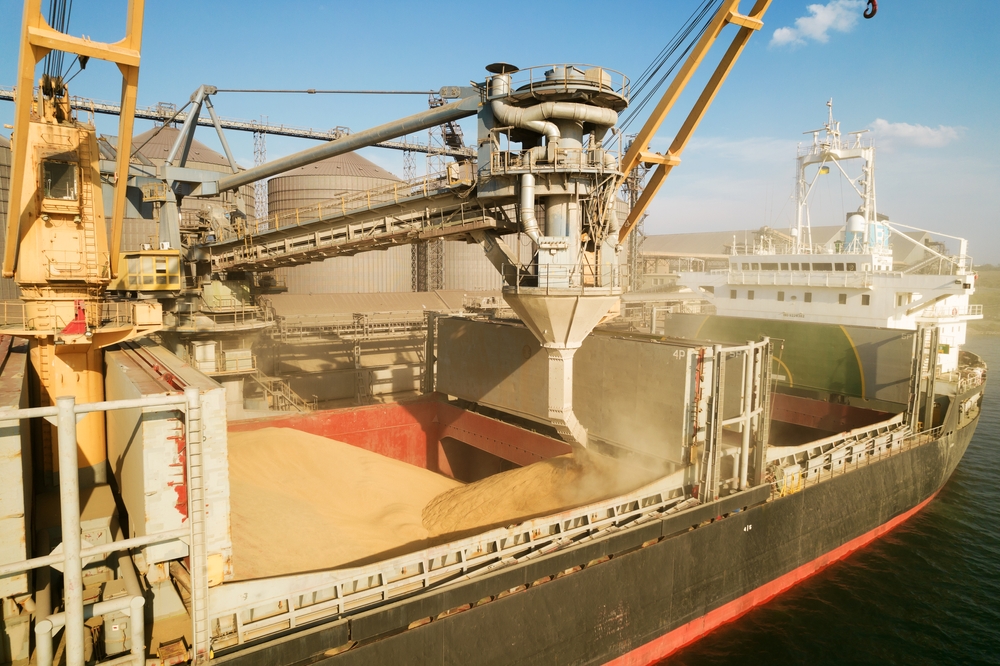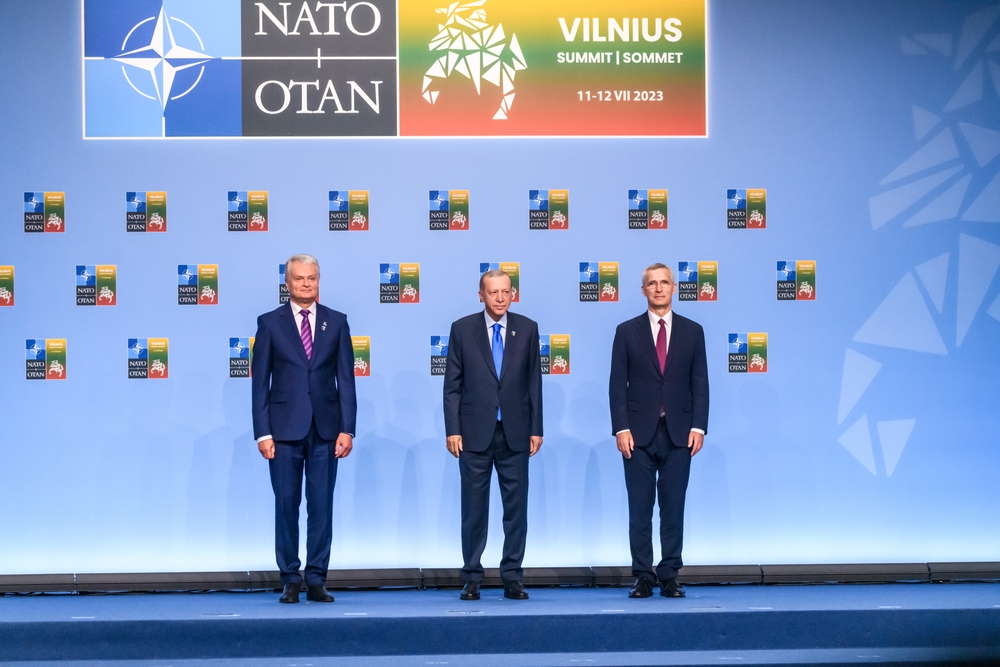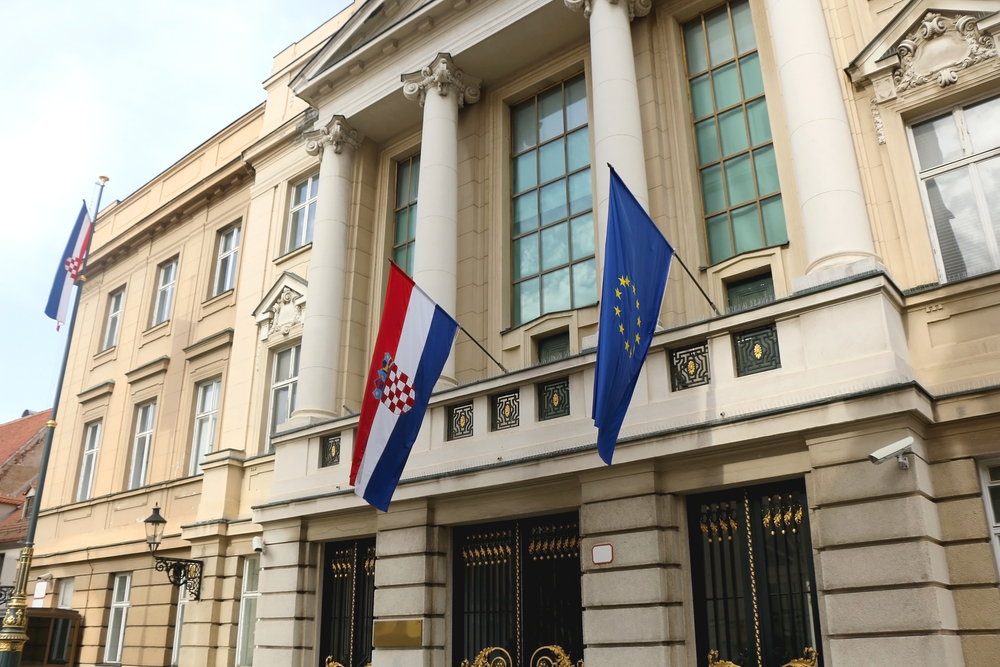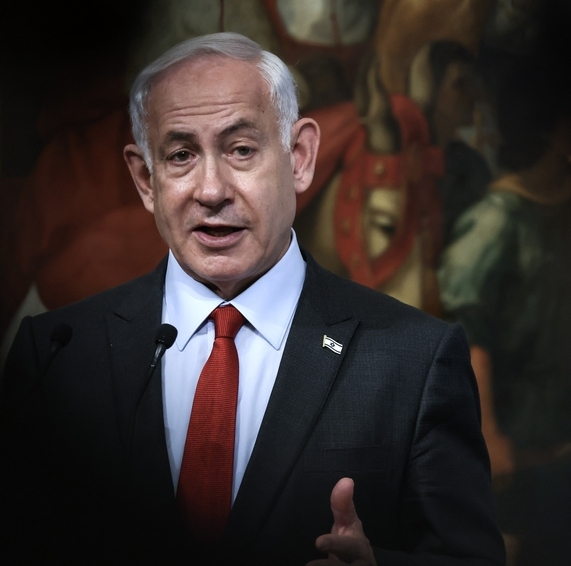EU-Ukraine wartime trade: Overcoming difficulties, forging a European path
by Svitlana Taran
Executive summary The EU’s unprecedented support to Ukraine has included temporary trade-liberalisation measures and the EU-Ukraine Solidarity Lanes, which have strengthened the country’s export capacities and the resilience of Ukraine’s wartime economy. In reaction to Russia’s blockade of the Black Sea, the EU set up EU-Ukraine Solidarity Lanes as an alternative way for goods to leave Ukraine by rail, road, and inland waterways. These measures have helped Ukraine maintain a slight increase in its total merchandise exports to the EU compared to the pre-invasion level. In contrast, Ukraine’s exports to other markets declined substantially. As a result, many Ukrainian producers and exporters were able to maintain their operations during wartime, receive critically needed export revenues, and deepen their integration into EU supply chains. However, the insufficient logistics capacity and lack of adequate coordination and cooperation during the operation of Solidarity Lanes led to tensions between Ukraine and its Eastern European neighbours. Their unilateral import bans on a wide range of Ukrainian agri-food products in April 2023 violated EU Single Market legislation. As a result, Ukrainian export flows were immediately disrupted, given that Ukraine’s access to global markets remains limited. While a compromise of the European Commission and the Eastern European countries allowed the extension of temporary tradeliberalisation measures for Ukraine for a further year, resolving the immediate crisis, more is needed to ensure its smooth operation. To prevent further crises and disruptions of transit flows, the EU should further increase investments in the transport and storage capacity of Solidarity Lanes and connectivity between EU neighbouring countries and Ukraine, enhance transparency and regular monitoring, data exchange, and coordination of transit flows, and conduct regular trilateral consultations between the European Commission, Eastern European countries, and Ukraine to avoid sudden and unjustified Solidarity Lane disruptions. Amid Russia’s new escalation and withdrawal from the Black Sea Initiative on 17 July, the international community should use all possible leverage to pressure Russia, double down on safeguarding Ukraine’s maritime export routes, and provide Ukraine with more defence capacity to protect its critical infrastructure in the Black Sea and the Danube. In addition, further trade liberalisation and Ukraine’s integration into the EU Single Market should be a priority on the EU-Ukraine agenda as soon as possible, in line with Ukraine’s accession path. Ukraine’s wartime trade losses and the need for further support The economic burden of Russia’s war on Ukraine is enormous and only continues to increase. Ukraine’s economy contracted by about a third, while exports dropped by 35.1%, meaning that Ukraine received $24 billion less in foreign currency revenue in 2022 compared to 2021 (see Figure 1). The iron and steel industry was hit the hardest, leading to the largest reduction in export supplies - 67.5% or $9.4 billion, in 2022 vs 2021. Significant cuts were also witnessed in ore exports (-56.7% or $4 billion), chemicals (-54.3% or $1.5 billion), machinery, and electronic equipment (-29% or $1.5 billion). At the same time, the reliance of Ukraine’s economy on agricultural and food exports increased during wartime - agricultural and food products generated more than half of all critically needed export revenues (53% in 2022 vs 40% in 2021). Yet, total agricultural and food exports declined by 15.5% or $4.3 billion in 2022. Ukraine’s ability to trade has been significantly hampered by Russia’s blockade of key Black Sea ports, disrupting the country’s main export route for grain, vegetable oils, metals, and iron ore. For example, before the full-scale invasion, about 90% of grain and oilseeds were exported from Black Sea ports. In addition, export capacities were hit by the destruction of production facilities and critical infrastructure (especially transport and energy), particularly in the South and East of Ukraine. Since Russia’s full-scale invasion of Ukraine, at least 426 large and medium-sized enterprises and thousands of small enterprises have been damaged or destroyed. Disruption of internal and external supply chains, shortages of critical imports, and surging production and logistics costs have become a big challenge for Ukrainian producers, undermining their profitability and competitiveness in global markets. In agriculture, significant losses were caused by Russia’s occupation of vast swathes of territory, mining, and physical damage to agricultural land, storage facilities, livestock, and agricultural machinery. Many Ukrainian farmers have been driven to the edge of bankruptcy due to a sharp decline in export and domestic revenues and increased production and logistics costs (export costs for Ukrainian grain rose from $30-$40 per tonne pre-war to $140-$150 upon the invasion). The devastating destruction of the Kakhovka dam in Southern Ukraine on 6 June 2023 (leaving at least 500,000 hectares of farmland without access to irrigation water) has further undermined production and export potential. The Black Sea Grain Initiative and the importance of seaport routes Securing and unblocking Ukraine’s agricultural exports is vital for global food security. Ukraine is a major world exporter of maize, wheat, barley, rapeseed, and sunflower oil, supplying over 45 million tonnes of grain to the global market each year. Russia’s blockade of Ukrainian seaports is a major threat to global food security, especially for regions heavily reliant on shipments from Ukraine - North Africa, the Middle East, and South Asia. It placed huge pressure on food prices in global markets, which reached a record high after the invasion. The UN-Türkiye backed Black Sea Grain Initiative has allowed Ukraine to resume and significantly increase the volumes of its seaport agricultural exports to global markets since August 2022. However, only three Ukrainian Black Sea ports in Odesa were unblocked, and only for grain and oilseeds. Russia constantly threatened and sabotaged the implementation and prolongation of this deal, causing long queues of ships and making seaport shipments more expensive and complicated. Furthermore, export capacity under the deal was limited and unstable (2.9 million tonnes in January, 3.9 million tonnes in March, and 1.3 million tonnes in May 2023) due to Russia delaying the inspection of vessels in the Bosphorus and their registration for participation in the grain agreement. As a result, the workload of Ukrainian ports declined to 30-35% as of April 2023, and Ukrainian farmers were left with large stocks of grain, thereby facing uncertainty about export activities, and suffering significant losses. According to the UN, almost 33 million tonnes of agricultural produce were exported through the Black Sea Grain corridor, about 50% of all exported grain and oilseeds since its application in August 2022. The agreements helped stabilise global food markets and reduce volatility, with global food prices gradually falling as of March 2022. The major export destinations of Ukrainian grain through seaports included China, Spain, Türkiye, Italy, the Netherlands, Egypt, and Bangladesh (57% of all shipments under the agreement went to developing countries vs. 43% to developed countries). China was the largest buyer of Ukrainian grain, importing almost a third of all shipments under the grain agreement (mainly maize). By purchasing Ukrainian grain, China was diversifying its food supplies and enhancing its food security. At the same time, Turkish companies, for example, benefitted from re-exporting Ukrainian grain (both processed and unprocessed) to global markets. The grain deal was extended several times (last time– until 18 July). However, on each occasion, Russia usually intensified its pressure on Ukraine before negotiations for its further extension – by threatening to terminate the agreement unilaterally, blocking the work of the grain corridor, and demanding the removal of some Western sanctions. In May-July 2023, the capacity and effectiveness of the grain agreement declined as Russia significantly limited the registration of ships at Ukrainian ports required “to overcome obstacles to Russian grain and fertiliser exports” (see Figure 2). As a result, Ukraine has been reducing its reliance on the sea corridor over the last few months and shifting to alternative routes. However, the seaport corridor is important for Ukraine for its proximity, developed transport and storage infrastructure, and lower logistics costs. The grain agreement has never been as important to Russia as it is to Ukraine, but rather a tool for pressuring Kyiv and the West. In an attempt to save the grain agreement, the UN suggested some compromises, including the connection of a subsidiary of the state agricultural bank to SWIFT. However, Russia refused, demanding that all of its demands be met, and withdrew from the agreement on 17 July. The subsequent attacks on Ukraine’s Odesa and Danube port infrastructure were clearly aimed at further hampering Ukraine’s export capacity and access to global markets, depriving Kyiv of a major source of foreign currency revenues (Ukraine received about $13 billion for its grain and oilseeds in 2022 in total), as well as increasing the reliance of developing countries on Russian food supplies. The suspension of the grain agreement also increases pressure on global grain prices (according to the IMF, they could rise by 10-15%), as well as make developing countries more reliant on Russian food supplies, thereby deepening their food insecurity. Alternative export routes for Ukraine via EU-Ukraine Solidarity Lanes Initiated in May 2022, the EU-Ukraine Solidarity Lanes provide alternative routes for Ukraine’s exports via Eastern European countries using land transport (trains and trucks) and Danube River ports to ship goods to global markets and EU member states (through seaports in Romania, Poland, and other EU countries). According to the European Commission, the Solidarity Lanes allowed Ukrainian exporters to partly compensate for the loss of sea routes and to unblock about 40 million tonnes as of the end of July 2023, which is more than 50% of Ukrainian grain and oilseed exports since the start of the invasion. In addition, the Solidarity Lanes have been the only option for Ukraine’s non-agricultural exports (metals, iron ore, chemicals) and the only option for Ukraine to import all the goods. The Solidarity Lanes have also helped export over 35 million tonnes of nonagricultural products from Ukraine. The capacity of Solidarity Lanes exceeded 3.5 million tonnes of grain and oilseeds in March 2023 (see Figure 2). The Danube River, with the ports of Izmail, Reni, and others, has become the vital export route for Ukrainian grain and other products (it shipped about 30% of Ukrainian grain and oilseed exports after the invasion, about 40% in June 2023). Its capacity has been expanded to 2-2.2 million tonnes of grain per month, with volumes increasing. To alleviate obstacles to trade and increase the cargo flow via the Danube, Ukraine has been increasing the depth of the canals leading from the Danube ports to the Black Sea and creating infrastructure for grain storage and export. In particular, Ukraine has increased the depth of its Southwestern Bystre Canal on the Danube River from 3.9 to 6.5 metres and 7 metres in some parts of the canal. Rail and road export routes have handled about 1 million and 600-700,000 tonnes of produce per month, respectively. However, import restrictions against Ukrainian grain by five Eastern European countries reduced the flow of shipments in this direction during the last few months (to about 600,000 tonnes by rail and 200,000 tonnes by road). Rail and road routes have also faced logistical bottlenecks, such as incompatible rail gauge widths between Ukraine and the EU, the limited transport and storage capacity of Eastern European countries, including shortages of appropriate trains and trucks, slow clearance procedures, and long waiting times at border crossing points. Logistics bottlenecks limit export volumes and raise the logistics costs of alternative routes, which have been considerably higher compared to seaport routes. There have also been organisational and coordination problems in implementing the Solidarity Lanes initiative. Ukraine, the European Commission, and EU member states have been implementing several infrastructure projects to alleviate existing logistical constraints, increase the capacity of the Solidarity Lanes and improve cross-border connections between Ukraine, Moldova, and the EU. The European Commission has mobilised one billion euros to fund the infrastructure developments of the Solidarity Lanes over 2022-2023, such as increasing the number of border crossing points for trucks, road improvements, rehabilitation of railway infrastructure and multimodal logistics in Romania and Moldova to Ukraine’s borders, etc. Additional funding opportunities have become available for Ukraine after its integration into the Connecting Europe Facility programme in June 2023, enabling Ukraine to apply for EU funding for projects in the transport, energy and digital realms. The Solidarity Lanes have helped diversify and reduce Ukraine’s dependency on a single export route. Amid continued obstruction of seaports by Russia and the suspension of the grain deal, Ukraine needs to reorient its agri-food exports further, placing a larger burden on alternative routes via the Solidarity Lanes and risking new tensions with EU neighbours. Ukraine plans to export the major part of its expected grain and oilseed exports (up to 40 - 42 million tonnes from the expected 48 million tonnes of exports) across the three routes of Solidarity Lanes during the next season. Therefore, it is essential to ensure the smooth running and further expansion of the capacity of alternative export routes – deepening river canals, extending the rail network, and building transhipment terminals. The use of new routes and EU seaports, as offered by Croatia, the Baltic states, and Greece, can also help expand the capacity of transit routes. However, they imply longer distances and higher logistics costs, and require significant investments in rail, road, and storage infrastructure. EU trade-liberalisation measures for Ukraine during wartime EU-Ukraine trade relations were already significantly liberalised under the EU-Ukraine Deep and Comprehensive Agreement (DCFTA), which has been provisionally applied since 1 January 2016. As of the beginning of 2022, most tariffs for industrial and agricultural products had already been abolished under the DCFTA. However, the EU still applied tariff measures to certain Ukrainian exports, the most restrictive of which were tariff rate quotas (TRQs). TRQs allow for duty-free import of a product’s specified volume, while beyond-TRQ supplies are dutiable and subject to EU tariff rates for third countries. Ukrainian agri-food producers complained about the low and outdated volumes of the EU TRQs under the DCFTA that did not reflect the current level of Ukraine’s production and export capabilities and the level of EUUkraine trade relations. Ukraine was utilising 31-32 out of 36 EU TRQs under the DCFTA during recent years, from which the following TRQs were usually fully exhausted: honey, processed tomatoes, apple and grape juices, processed cereal grains, sugar, starch, processed starch, eggs, corn, corn flour and pellets, poultry meat, etc. For many of them, Ukraine’s supplies usually exceeded TRQ volumes (e.g. total supplies of honey from Ukraine to the EU usually exceeded the volume of the relevant TRQ by 8-10 times). However, out-of-quota import tariff rates and TRQ administration costs still had a restrictive impact on Ukrainian exports. As Ukraine’s major trading partner (accounting for about 40% of Ukraine’s trade before the invasion), the EU has been supporting the resilience of Ukraine’s wartime economy by restoring Ukraine’s ability to trade and generate export revenues. The EU has introduced temporary trade-liberalisation measures such as the Autonomous Trade Measures (ATMs) since 4 June 2022 for one year (ATM Regulation 2022/870) including the complete removal of: ● The remaining import duties on industrial products; ● All tariff rate quotas on agricultural and food products; ● Entry prices on fruit and vegetables; ● All trade defence measures (anti-dumping duties and safeguards mostly applied to steel products). The EU also implemented other steps to facilitate transportation and border control for Ukraine’s exports. It has temporarily liberalised the transport of freight by road between the EU and Ukraine in relation to bilateral 8 operations and transit by abolishing the need for permits (the agreement was recently extended for one year - until 30 June 2024). Besides, in October 2022, Ukraine joined the Common Transit Convention which simplified customs transit procedures between the EU and Ukraine. EU-Ukraine trade dynamics after Russia’s invasion After a significant decline in the first months of Russia’s invasion, Ukrainian exports to the EU even slightly exceeded pre-invasion levels by the end of 2022, while exports to other trade partners substantially declined. Consequently, the role of the EU as Ukraine’s main trading partner increased to 63% in 2022 from about 40% in 2021 (of $44.2 billion in Ukraine’s total exports of goods in 2022, about $28 billion were destined for the EU market). The driving factor behind export recovery was the fast growth of agri-food exports to the EU - by more than $5.2 billion or by almost 70% year on year in value terms (including cereals – by 141.7%; vegetable oils – by 29.4%; oilseeds - by 96.5%). This helped to compensate for the significant drop in iron and steel exports (by 48.7%), iron ore (by 21.0%), and machinery equipment (by 10.0%) to the EU. Increased agri-food exports to the EU in 2022 can be explained by several factors, including Ukrainian exporters reorienting to closer markets because of logistics problems and high freight and insurance costs, better access to the EU market due to EU trade liberalisation measures and new export routes, greater demand for imported grain in the EU as a result of a drought affecting many regions of Europe in 2022, as well as higher prices for many agricultural products in the EU due to Russia’s invasion. Among all temporary trade-liberalisation measures, the suspension of TRQs has been the most impactful - in facilitating Ukraine’s exports to the EU. Namely, exports of sugars, apple juice, poultry meat, eggs, milk powder, starches, processed cereal grains, and cereals, earlier subject to TRQs, saw the greatest growth (see Table 1). The suspension of the over-quota import duties gave these Ukrainian products a competitive advantage in the EU market when compared to products from other third countries, as well as lower TRQ administrative costs for Ukrainian exporters due to the simplification of export procedures. In contrast, despite trade liberalisation, there was a drop in exports of some products such as honey and processed tomatoes. However, this can be explained by other factors (e.g. loss of production capacities due to the war). Unilateral measures of neighbouring EU countries against Ukraine’s imports Poland, Romania, Hungary, Slovakia, and Bulgaria - the five neighbouring Eastern European countries (EEC) in the frontline of the Solidarity Lanes - became the major markets for the export of Ukrainian goods in the EU. Their joint share in Ukraine’s exports of goods to the EU increased from 32% in 2021 to 56% in 2022. Ukraine’s exports of goods to these countries increased by 54% y/y in 2022 - to $15.7 billion, with agri-food products accounting for the significant increase. Agri-food exports to five neighbouring countries increased by 5.2 times to a record $7.2 billion in 2022, of which $2.4 billion were generated by grains and $1.9 billion by oilseeds. Five Eastern European countries, which are also large agricultural producers, accepted about 35% of four major agri-food exports from Ukraine to the EU in 2022 vs 1% in 2021 (See Figure 3). Both transit flows and sales of agri-food products to these countries have substantially increased after Russia’a invasion. Due to logistical problems related to the Solidarity Lanes (insufficient storage and transport infrastructure and high logistics costs), substantial transit flows of grain and oilseeds to EU ports and third markets were disrupted, and much of Ukraine’s produce was sold in local markets. According to EU statistics, the physical volumes of Ukrainian wheat, maize, rapeseed and sunflower seed imports doubled in 2022 – 19.3 million tonnes in 2022 vs 9.5 million tonnes in 2021. From this, about 8 million tonnes were sold to the five Eastern European countries in 2022 vs only 176,000 tonnes in 2021. Transit disruptions and large quantities of Ukrainian crops exhausted storage and transport capacities raised logistics costs for local farmers and put downward pressure on purchase prices of local agri-food products. Additionally, world agricultural commodity prices declined from their early-2022 peaks due to better harvests in major grain-producing countries, improved crop conditions in the EU, and the implementation of the Black Sea grain agreement. Amid these developments, local farmers in these countries responded with protests demanding that they are protected from duty-free Ukraine’s imports. These tensions also caused delays in the adoption of the new regulation on the continuation of duty-free trade with Ukraine. The Eastern European countries blamed Brussels for insufficient help to support them. The EUR 56 million in subsidies allocated by the European Commission to the affected farmers in response to their protests in early April 2023 failed to satisfy them and their national governments. They called for additional EU funding to speed up the development of transit infrastructure, as well as the introduction of automatic compensation for farmers, the possibility for the rapid introduction of trade defence measures and the re-introduction of tariffs and tariff-rate quotas on imports from Ukraine, and the purchase of grain in the EU market for humanitarian purposes. The lack of adequate coordination and cooperation between the Eastern European countries, the European Commission, and Ukraine related to the operation of the Solidarity Lanes led to a crisis, with EEC adopting controversial unilateral restrictions. On 15 April, Poland’s government unilaterally introduced a ban on imports and transit of Ukrainian agri-food products until 30 June (the transit ban was abolished on 21 April). Hungary, Slovakia, and Bulgaria followed with import bans on certain Ukrainian products (without a transit ban), while Romania also considered taking similar steps. As a result, Ukrainian exports were significantly restricted, becoming stuck at the Western borders for about two weeks, creating uncertainty and losses for Ukrainian exporters. Import restrictions in the EU neighbouring countries, as well as Russia’s increased pressure and sabotage of the Black Sea grain agreement, were the main factors of the decline in Ukraine’s exports of goods in April and May 2023 ($3 billion and $3.1 billion respectively) compared to March 2023 ($3.8 billion). These national decisions raised a lot of criticism from Ukraine and the European Commission. A primary concern was their non-compliance with EU legislation, and international and bilateral commitments. Unilateral actions by member states are not allowed under EU law, given that trade policy is an exclusive EU competence. The safeguard clause of с 2022/870 on temporary trade liberalisation measures for Ukraine entitles the Commission to monitor and take necessary steps. The unilateral blocking of imports by one or several member states also undermines the principles of the EU Single Market, which provide for the freedom of movement of goods within common customs territory. In addition, these decisions are not in line with the World Trade Organization (WTO) rules or the provisions of the EU-Ukraine Association Agreement on freedom of transit and the use of import bans. Additionally, the bans were applied immediately and adopted without proper bilateral consultations with the Ukrainian side. Another important aspect - the EEC’s decisions were not supported by solid analysis of the import dynamics of specific products and their impact on the EU market. The scope of the bans application was too wide, and the criteria for the inclusion of certain Ukrainian products into the list of banned products was unclear in many cases. For instance, the Polish list was the longest and included a wide range of agri-food products - grains, sugar, meat, fruits, vegetables, oilseeds, processed fruit and vegetable products, wines, milk and dairy products, eggs, honey and others. These products demonstrated different import dynamics after Russia’s invasion, influenced by different factors, each requiring separate detailed analysis. While many of these products got duty-free access to the EU market following the start of Russia’s invasion under ATM Regulation 2022/870, not all witnessed a significant increase in imports to the EU in 2022 vs 2021 and 2020 (see Table 1). For example, import volumes of Ukraine’s honey and processed tomatoes to the EU even declined in 2022 (in the case of Poland, imports of honey from Ukraine dropped from 16.9 thousand tonnes in 2021 to 10.6 thousand tonnes in 2022). At the same time, some of the banned Ukrainian products, such as oilseeds, frozen fruits, and sunflower oil, were not subject to any TRQs or tariff measures in the EU before the invasion. Moreover, although the imports of some products subject to TRQs before Russia’s invasion (e.g. milk powder, sugars, starches, poultry meat) considerably grew in 2022 as compared to the previous years, the increased volumes still did not constitute a significant part of the EU extraimports or the EU intra-trade (see Table 1). For instance, EU imports of milk powder from Ukraine (under TRQ 09.4601) grew more than five times in 2022 – from 2 000 to 11 300 tonnes. However, Ukraine’s share in the EU extra-imports of these products was about 9% in 2022, and in the EU intra-imports - less than 1%. Considerable part of these products was imported to Poland (about 45%). However Ukraine’s share in Poland’s total imports of these products was only about 3%. In a broader context, Ukrainian agri-food imports helped ease the inflationary pressure on the EU food market amid lower grain production in the EU last year. The EEC countries expanded agri-food exports by re-exporting Ukrainian products to other EU countries and worldwide, as well as producing and selling abroad agri-food products processed from Ukrainian crops (such as sunflower oil, processed cereals, flour, meat and dairy products, etc.). For instance, Poland’s agri-food exports reached a record level of EUR 47.6 billion in 2022, and its positive agri-food trade balance amounted to EUR 15.5 billion, or 23% higher than in 2021. The positions of national governments were also influenced by challenging domestic political contexts, especially considering the upcoming parliamentary elections in Poland and Slovakia in 2023. The Polish government’s narrative was primarily focused on local farmers, whose votes are crucial for the ruling party.46 Farm lobbies tried to use this opportunity to restrict access to their markets for a range of Ukrainian agri-food products disproportionately. It is important to recognise local farmers’ reservations about a significant increase in imports of some agricultural products from Ukraine and their rights to raise these concerns. Still, unilateral responses of these countries are seen as quite unconstructive and undermining the unity and cooperation of EU members. The immediate bans against Ukrainian products were not in line with the solidarity efforts undertaken by Poland and other EU neighbouring countries for Ukraine. This situation also exposed possible challenges the future of Ukraine’s EU accession negotiations and their support for greater EU-Ukraine trade liberalisation and Ukraine’s integration into the EU Single Market. A compromise solution between the Commission and the five EU countries By adopting unilateral measures, the EEC put pressure on the Commission to agree on an urgent compromise: introduce exceptional and temporary preventive measures under Article 4(9) of the ATM Regulation 2022/870, namely a ban on imports of four Ukrainian products (wheat, maize, rapeseed and sunflower seeds, revealing the strongest effect on local markets) to five counties between 2 May - 5 June 2023, while the EEC countries agreed to abolish all their unilateral restrictions on all Ukrainian products. At the request of five EEC countries, these safeguards were prolonged until 15 September 2023. In addition, a further EUR 100 million will be allocated to support and alleviate the pressure on affected local farmers of grains and oilseeds in these countries. This decision allowed for more targeted restrictions compared to the earlier unilateral measures and ensured the free and unlimited transit of all Ukrainian products within the EU territory and their import to all EU countries except those bordering Ukraine. It has also allowed for the adoption of the new Autonomous Trade Measures Regulation (ATM Regulation 2023/1077) on the continuation of temporary trade liberalisation for Ukraine for a further year (until 6 June 2024). Furthermore, the text of the ATM Regulation 2023/1077 has been amended to change the safeguard clause for the expedited reintroduction of the customs duties otherwise applicable under the EU-Ukraine Association Agreement (namely tariff-rate quotas and the entry-price system) on Ukrainian imports in case they adversely affect the EU market. In particular, member states have to provide sufficient prima facie evidence of the adverse effects of Ukrainian imports on the EU market to request the European Commission to initiate such an assessment, which must be concluded within three months of its launch. These amendments shorten the timelines of the safeguard procedure and better explain the requirements for launching an assessment, which should prevent unjustified claims for import restrictions from member states. The safeguard clause implies clear procedural rules with a prior evidence-based assessment before the adoption of any restriction. In addition, the new regulation permits the Commission to implement immediate preventive measures under exceptional circumstances, as was the case with the ban on four Ukrainian products under the previous ATM Regulation 2022/870. The ATM Regulation does not define criteria for taking immediate preventive measures, nor the time limits for their possible application. However, since these measures are taken to address a situation requiring immediate action, they should be of an exceptional and temporary nature. The reached agreement and applied measures provided a short-term solution for a crisis. However, it still undermines the integrity of the EU Single Market and creates a precedent for further violations of EU law by allowing member states to bargain with the Commission to achieve additional support measures, thus weakening the enforcement of Single Market rules across EU countries. While the EU’s decisions signal its ongoing trade support for Ukraine, there are risks of prolongation or the introduction of new import restrictions in the EU. Poland and Hungary are again threatening to close their borders unless Brussels extends temporary restrictions against Ukrainian grain and oilseeds until at least the end of 2023 and ensure that none of the products remains in these countries. In addition, the Eastern European countries may request the Commission to impose preventive measures for other sensitive agri-food products from Ukraine such as poultry meat, sugar, eggs, honey, fruits, etc, under the current ATM Regulation. These risks create additional pressure and uncertainty for Ukrainian agri-food producers. Conclusions and recommendations During the first year of Russia’s war on Ukraine, EU trade liberalisation measures and EU-Ukraine Solidarity Lanes provided Ukraine with alternative export routes. They allowed the country to reorient part of its exports to the EU market, facilitating the gradual recovery of Ukraine’s exports after the first deep shock of the war. The European Commission, EU member states, and the Ukrainian government should further intensify their dialogue and efforts to find a solution to the current trade dispute about import bans on Ukrainian grain and oilseeds, facilitate Ukraine’s trade flows and prevent sudden trade disruptions and restrictions. This has become critically important, especially after Russia’s withdrawal from the grain agreement and attacks on Ukraine’s port and export infrastructure. At the same time, the crisis in the Eastern European countries also highlighted the existing logistics and connectivity bottlenecks between Ukraine and the EU. Their rapid resolution should be a priority of the EU, along with international financial support for Ukraine. In addition, the precedent created by the application of unilateral measures in violation of the EU law revealed significant challenges with the enforcement of EU law by EU member states. This does not bode well for Ukraine’s future enlargement negotiations. To address current challenges and prevent a repetition of this year’s crisis, the following next steps should be taken: ● Enhance the strategic alignment and connectivity between Ukraine and the EU Ensuring smooth operation and increasing the capacity of the Solidarity Lanes is critically vital for the transit of Ukraine’s agricultural and non-agricultural exports to both the global markets and EU member states during wartime. This must include urgently increasing investment in EU-Ukraine road, rail, and river connections, deepening of river canals, increasing the available transport material, enhancing EU-Ukraine border infrastructure, building transhipment terminals, increasing grain and food storage facilities in the Eastern European countries, as well as further optimising customs operations and better coordinating transit across these countries. Although alternative routes cannot fully replace the Ukrainian seaports occupied by Russia, they have helped diversify Ukraine’s export routes, lowered Kyiv’s dependence on the grain agreement and seaport routes, and reduced Russia’s leverage on shipping Ukraine’s exports. After Russia’s withdrawal from the grain agreement, the significance of the Solidarity Lanes is increasingly critical for Ukraine’s trade. Expanding Solidarity Lanes, extending European Transport Corridors (TEN-T) to the territory of Ukraine, and developing the Ukrainian part of the TEN-T network, improving connectivity and interoperability of transport systems in Ukraine and the EU is also important in view of Ukraine’s post-war recovery and further economic integration into the EU Single Market, and the involvement of Ukraine in European value chains. This will also enhance the performance and resilience of EU food supply chains and will work to the advantage of Ukraine, the EU and global food security. ● Ensure security guarantees and increase the capacity of seaport corridorsThe importance of the Black Sea grain agreement and seaport exports for Ukraine and the world cannot be overestimated. Ukraine cannot reach the same export levels without functioning seaports, so any possibility and mechanisms to ensure free navigation in the Black Sea should be explored. Ukraine needs greater support from the EU and international community in maintaining shipments through Black Sea ports, resurrecting the grain agreement and opening new sea corridors, purchasing Ukrainian grain in cooperation with the UN’s World Food Programme (WFP) and transporting it to developing countries. Major stakeholders, including the largest buyers of Ukrainian agri-food produce (China, Türkiye, the countries of the Middle East, as well as many African nations), should use their leverage and increase pressure on Moscow to resurrect the deal and safeguard seaport corridors. As Russia seeks to strengthen its position in Africa, strengthening dialogue with African countries is even more crucial in terms of their possible influence on Russia’s position about the blockade of Black Sea navigation and Ukraine’s access to global food markets by sea. Many African nations expressed disappointment about Russia pulling out of the deal at the Russia-Africa Summit. ● Enhance coordination and unity between the Commission, EU member states, and UkraineEU member states should avoid a violation of EU law and unity and should engage in “sincere cooperation as a cornerstone of the EU legal order”. Unilateral drastic actions do not facilitate unity and coordination between the Commission, member states, and Ukraine and undermine potential solutions. The European Commission should ensure the consistent enforcement of EU law and prevent a possible repetition of cases using the same political tactics with unilateral measures that violate EU law. To avoid a repetition of crisis situations, efforts from all sides should be intensified to improve the operation of Solidarity Lanes, including data exchanges, notifications of trade volumes and policy changes, monitoring and supervision of transit flows, customs operations, and trading practices in Ukraine and the EU countries. In this respect, the recently established Joint Coordination Platform led by Executive Vice-President Valdis Dombrovskis should foster regular consultations and coordination between the Commission, Eastern European countries, and Ukraine to address the concerns of all sides. Strategic partners Ukraine and EU neighbouring countries should demonstrate willingness to coordinate stances and support each other in important areas. ● Avoid sudden and unjustified Solidarity Lanes disruptions The EU and its member states should avoid the application of sudden bans or other restrictions on Ukrainian imports or transit from Ukraine. Such actions are the most harmful for exporters, causing losses and uncertainty. This is particularly the case during wartime when Ukrainian producers are already suffer from production and logistics shocks. The European Commission should ensure that all decisions are made after proper consultations with the Ukrainian side and be taken on evidence-based assessments of the impact of Ukrainian products in the EU market. In June, the Commission extended immediate preventive measures in the form of import bans on four Ukrainian grain and oilseeds until 15 September. As immediate preventive measures are exceptional and temporary, they should be replaced by welljustified policy decisions and procedures. Considering the serious challenges faced by Ukraine and its EU neighbours due to Russian aggression, a compromise solution should be found between Ukraine and these countries. It can imply, for example, lifting import bans against Ukrainian products and, at the same time, taking commitments by Ukraine not to exceed the agreed amount of export volumes to EU neighbouring countries (based on the assessment of the market situation, storage capacities and harvest forecasts). At the same time, non-neighbouring EU members should also be prepared to absorb greater volumes of reoriented Ukraine’s agri-food flows. To increase the transparency of this process as much as possible, the Commission should implement a comprehensive monitoring and analysis of transit flows, the state of storage and transport capacities, and prices based on evidence from all sides and stakeholders. ● Protect critical port and export infrastructure from Russia’s attacks Russia’s attacks on the Black Sea and Danube port infrastructure and possible interruptions of this traffic may significantly undermine Ukraine’s export potential, and international grain supplies and global food security. Ukraine urgently needs more defence capacity to protect its critical infrastructure in the Black Sea and the Danube from Russia’s attacks. ● Facilitate EU-Ukraine trade liberalisation and Ukraine’s integration into the EU Single Market EU member states must continue to demonstrate consistent, robust solidarity with Ukraine, which has been reinforced following Ukraine receiving candidate country status. Their solidarity and support is also critically important for Ukraine’s trade and integration into the EU Single Market. EU-Ukraine trade volumes and Ukraine’s integration into the EU supply chains are expected to increase further as Ukraine advances on its EU path. Thus, further trade liberalisation and gradual integration into the EU internal market is an inevitable part of this process. Even before the war and the temporary ATMs, further trade liberalisation was on the agenda of EUUkraine relations. In 2021, the EU and Ukraine started negotiations to further liberalise and increase duty-free bilateral trade from both sides, including revising the DCFTA TRQs (as of now, these negotiations are paused). The possibility for further trade liberalisation is envisaged in the EU-Ukraine Association Agreement (Article 29). It is expected that after the termination of ATMs, Ukraine will initiate an overhaul of these negotiations to have EU-Ukraine trade more liberalised on a permanent basis - up to Ukraine’s accession to the EU. In this regard, Ukraine is interested in ensuring access to the EU Single Market for its processed agrifood products, increasing food processing capacities and integrating into EU food processing value chains.
